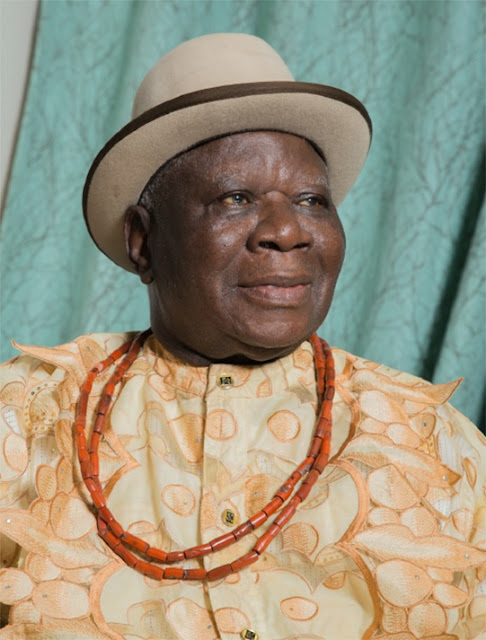Chief Edwin Clark, elder statesman and convener of the Pan-Niger Delta Forum (PANDEF), has issued a stern warning to Nigeria’s judiciary and police leadership over the escalating crisis in Rivers State.
In an open letter addressed to Chief Justice of Nigeria (CJN), Justice Kudirat Motonmori Kekere-Ekun, and the Inspector General of Police (IGP), Kayode Egbetokun, Clark painted a grim picture of judicial compromise and police inaction.
He urged the CJN to seize the opportunity to restore the judiciary’s credibility, warning that failure to do so would tarnish her legacy.
“This is your lifetime opportunity to say no to transactional judgments and write your name in gold,” Clark wrote passionately.
The elder statesman also lambasted the IGP for allegedly turning a blind eye to critical concerns in Rivers State, describing the situation as “playing with a keg of gunpowder.”
Rivers State in Turmoil
The Rivers State crisis has gripped the region, with accusations of judicial manipulation and political intimidation dominating headlines.
Clark commended the CJN for setting up a National Judicial Council (NJC) panel to investigate judges handling controversial cases in Rivers State.
He also applauded the questioning of the Chief Judge of the Federal High Court as a positive step towards addressing judicial irregularities.
However, Clark expressed concern over the influence of powerful politicians, particularly former Rivers State Governor and current Minister of the Federal Capital Territory (FCT), Nyesom Wike.
Accusations Against Wike
Clark accused Wike of exerting undue influence over the judiciary, alleging that his recent project to build houses for judges in Abuja was a ploy to curry favor.
“Governors should not build houses for judges. That is the duty of the National Judicial Council. Anything else compromises the independence of the judiciary,” he argued.
He criticized the CJN for attending the project’s commissioning, stating that such actions undermine public confidence in judicial impartiality.
“Growing up, judges rarely appeared in public. Their work demanded discretion and neutrality,” Clark lamented.
Constitutional Violations and Defections
Clark also highlighted constitutional violations involving the defection of Rivers State lawmakers from the People’s Democratic Party (PDP) to the All Progressives Congress (APC).
He accused former Speaker Martins Amaewhule and 27 other lawmakers of flouting Section 109 (1)(g) of the 1999 Constitution, which mandates the forfeiture of seats following such defections.
“Their defection automatically rendered their positions vacant,” Clark insisted, labeling subsequent court rulings as fraudulent.
Clark reserved sharp criticism for Justice James Omotoso, whose judgment he described as “a travesty of justice.”
“Double Standards” in the Judiciary
Clark further accused Wike of hypocrisy, recalling the former governor’s outcry against similar defections by opposition figures.
“When Dave Umahi defected to the APC, Wike shouted his voice hoarse. Why is he singing a different tune now?” he questioned.
The elder statesman also condemned the actions of Justice Donatus Okorowo, who allegedly granted questionable orders favoring the defectors.
According to Clark, Justice Okorowo was later promoted to the Federal Court of Appeal, leaving unresolved cases behind.
“Judicial Perjury” and Police Inaction
Clark did not mince words in accusing the defectors of perjury, citing inconsistencies in their affidavits.
He called on the police to investigate these discrepancies but lamented their reluctance to act due to Wike’s perceived influence.
“Wike is untouchable. He makes inflammatory statements on live television, yet nothing happens,” Clark fumed.
A Call to Action
Clark urged the CJN to prioritize integrity and fairness in her judicial oversight, emphasizing that Nigerians were losing faith in the system.
He also called on the IGP to address the Rivers crisis urgently, warning that continued neglect could have dire consequences for national peace.
“What Nigeria needs now is a strong structure with rules binding on everyone, no matter their status,” Clark concluded.

